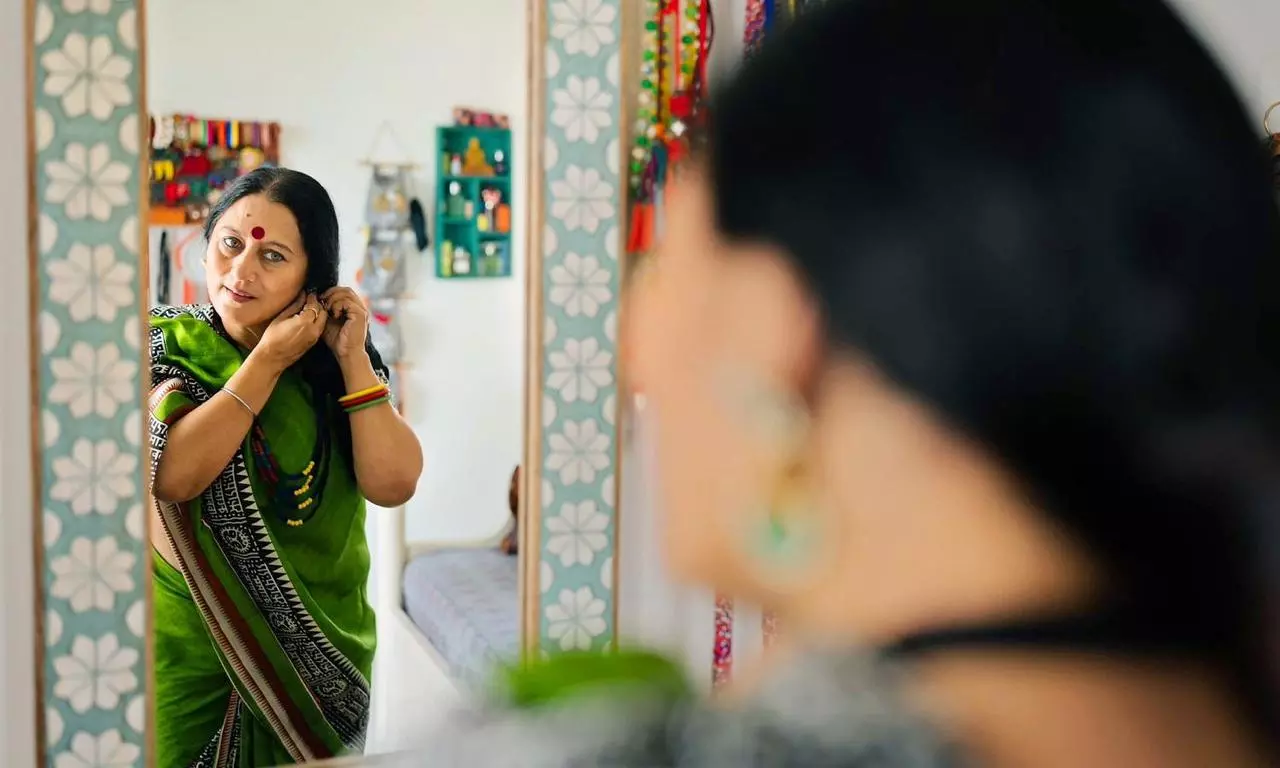
In an industry driven by stardom, where the spotlight rarely shifts from the leads, Piloo Vidyarthi’s journey is that of quiet resilience, layered artistry, and soulful depth. An actor, a singer, and a woman of introspection, Piloo has moved through films, television, and web series with grace and grit—even if the industry hasn’t always reciprocated in kind.
Her name itself carries the weight of her lineage. “Piloo, actually. That was my pet name,” she says with a smile. “It comes from the Indian classical raag Pilu. My grandmother, a classical singer who specialized in thumris, named me. She said it came to her naturally—I was the first grandchild, and thumris often start in raag Pilu. So, Piloo stuck.”
That heritage of music is not just a memory—it’s a current that still runs through her. Piloo may not have chased stardom as a musician, but it informs her every performance. “Being a musician—more importantly, a thinking musician—it’s a bonus,” she says. “I may not have been ambitious about music, but I feel through it. I hum before scenes, not because the scene needs music, but because it centers me. It’s like meditation.”
Her work in acting spans mediums, but it’s the OTT and film formats that give her room to breathe. “TV is like a daily factory,” she says plainly. “You earn, yes, but there’s no time to explore. Films and web shows, they allow you to think, to create. That’s home for an actor.”
Yet, Piloo’s story isn’t just about the parts she’s played—it’s equally about the ones that never reached the screen. “I have shot for films like Sarzameen and Veda—entire sequences. I was told I would play a nurturing figure, someone central to the emotional arc. But nothing was kept,” she recalls. “In Sarzameen, I was promised a Farida Jalal-type role, but the entire emotional track of the child was axed. It happens. You shoot, you hope, and then you quietly watch it disappear.”
It’s a stark reminder of the fragility of screen presence for character actors. “We’re often not part of the Excel sheets marked ‘primary cast.’ Sometimes we are, but the edit decides otherwise. You go to the premiere with your friends and sit there embarrassed—two scenes, maybe.”
But she’s not bitter—just deeply aware of the reality. “It’s part of the journey. What hurts is not screen time—it’s not being able to register, not making an impact.”
And when she does, the response is palpable. “With Mandala Murders, people wrote in. They noticed. They remembered. I watched it again just to understand—why did it touch people? And I saw it. The way every character stood out. That’s what we crave.”
Off screen, she’s never been idle. “Even when I was playing the role of a wife and mother, I was doing workshops with children and women… little things, but they kept me alive creatively.”
That balance, she says, comes from choosing only as much as she can be responsible for. “I have always had responsibilities. I never overloaded myself. People now say, ‘Why are you sitting at home?’ But they don’t realise—it’s not like I am not trying. I am giving interviews. That is also ‘looking forward’.”
Her musical workshops aren’t just side projects; they ae a form of activism. “They don’t make money, but they give meaning. I use music to absorb, to connect. And that trickles into my acting.”
So what is she looking for now?
“A primary character. Something with matter, with depth. Not just the mother with two scenes. I just finished a film called Haq, about Bhanu who fought against triple talaq. I play her mother. It’s a controversial, powerful story. That was fulfilling.”
But she’s candid about the hierarchy of sets. “When stars are around, even the atmosphere changes. Everything revolves around them—their lines, their presence, even the camera. Directors sometimes don’t have a say. So if your character isn’t in their orbit, you’re often left out.”
Despite the setbacks, there’s no cynicism. Only a quiet hope. “I don’t mind auditions. I go, I give. But I am still waiting for that one role that moves me forward. That gives me what others got—one defining character.”
As Piloo reflects on the privileges of the star kids and the weight of legacy, she offers this observation: “If you have never struggled, never felt life, how will you portray it?”
Piloo Vidyarthi continues to walk that path—rooted in music, grounded in reality, waiting not for stardom, but for that one moment of artistic truth. When it comes, she will be ready.
